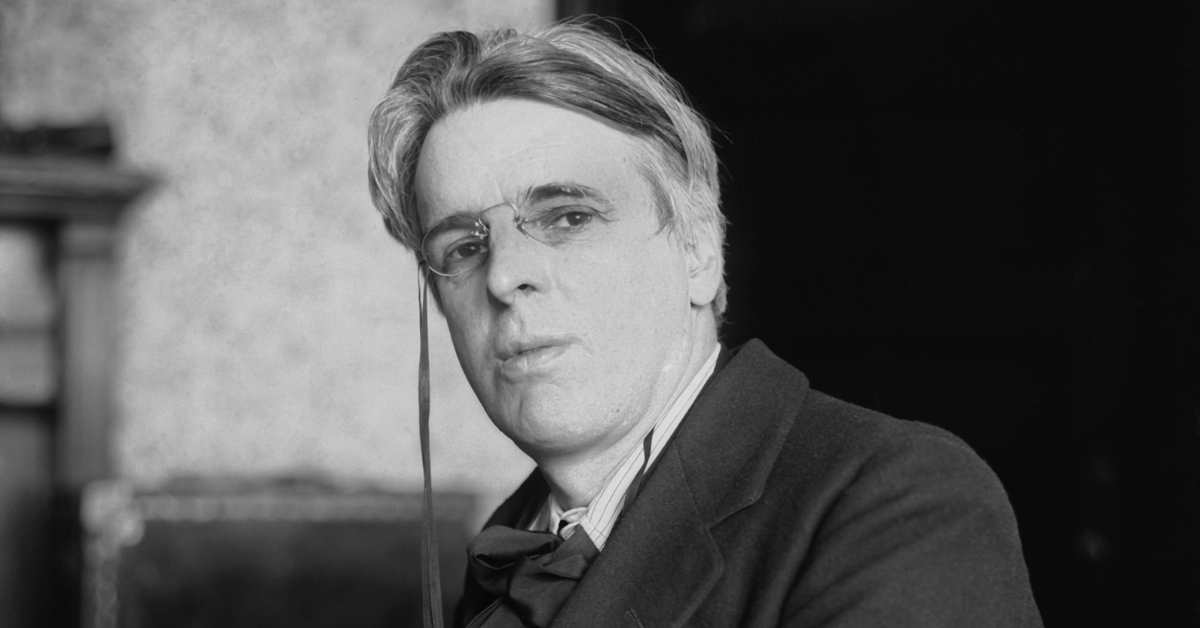In this insightful exploration, we critically assess William Butler Yeats’ role in shaping Irish folklore. Born during a transformative period in Ireland, Yeats was a major figure in the Irish literary revival and the ‘Celtic Twilight’ movement. However, his approach to integrating personal ideologies with traditional folklore has been contentious.
Our discussion aims to peel back the layers of Yeats’s influence, questioning the authenticity and implications of his modifications to Irish folklore, and suggesting more genuine sources for those interested in the untainted traditions of Ireland.
✨A Guest Post by Morgan Daimler
One of the main sources for Irish folklore that many people look to is William Butler Yeats, a late 19th century poet and writer who was inspired by Irish culture. Born in 1865 and dying in 1939, Yeats’ life spanned a pivotal time in both Ireland and in the field of folklore which was nascent in the late 1800s.
He is considered a key figure in the Irish literary revival and in the ‘Celtic Twilight’ a movement which revived interest in Celtic cultures as inspiration for art across a range of media. He also inserted his own ideas into the folklore he shared in ways that are still profoundly affecting Irish folklore to this day.
WB Yeats Early Work
Yeats early work focused on poetry, inspired by various European sources but without any Irish cultural notes. He began writing in his late teens, while still in school, and that may have influenced what inspired him during this period, however he quickly moved to writing about Irish themes, especially folkloric and mythic ones, and branched out to write both prose and plays.
The bulk of Yeats’ writing, of any type, would come to focus on Irish culture and expressed both a longing to believe and desire to share belief in things beyond human perception.
Fairy and Folk Tales
The Irish gods and the Aos Sidhe were commonly found across his work, and Yeats was friends with various other significant writers focused on Irish folklore of the time including Lady Gregory [whose influence is now well known but also deserves a critical eye – Editor].
In 1888 Yeats would produce an Irish folklore anthology ‘Fairy and Folktales of the Irish Peasantry’ which he edited and which included submissions from a range of Irish folklorists of the time like Thomas Crofton Croker and Douglas Hyde.
The Influence of Yeats
Yeats influence on modern folklore shouldn’t be underestimated. His work on Irish folk belief, which is now largely in the public domain and free on various websites, is often cited although there is ongoing debate about whether or not he was in any form a folklorist. While he may never have used that term for himself he was clear that his intention in his work, at least in part, was to collect and share Irish folklore and in that he was acting no differently than any folklorist of the time.
Yeats himself was open about this intention, for example saying in The Celtic Twilight:
“I have therefore written down accurately and candidly much that I have heard and seen, and, except by way of commentary, nothing that I have merely imagined.”
(Yeats, 1893).
This gives readers the impression that Yeats material is indeed the folklore of the time, gathered and shared through Yeats work, despite the strong influence his personal ideas had on the end result.
The Problem with Yeats
The problem with Yeats is multilayered and complex, but at its simplest is that people today take his work without any discernment or questions. Yeats was, ultimately, a product of his time and his [English] background which both influenced his work and shaped how he presented the material he shared.
As a writer relaying folklore of the late 19th century Yeats didn’t hesitate to reshape the material he was sharing rather than making any attempt to record it as it had been relayed to him, despite the way he chose to frame it all as genuine folk belief and despite his claims to the contrary.
He was a teller of tales and a weaver of words whose first and perhaps preferred language was poetry and he was a man with his own agendas, some of which clashed with wider Irish folk belief. Rather than seeing him as a vessel for that folk belief we should understand him as a man who was using folklore as a tool to his own ends and as a lens through which he could express his imagination.
Better Sources for Irish Folklore
🔗We have a whole blog post on Essential Irish Folklore Resources – Here.
If you are interested in Irish folklore from the late 1800s and early 1900s a much better source is Duchas.ie, a website created by University College Dublin which hosts, in part, a collection of folklore gathered by students during that period.
While it can be somewhat more difficult to navigate Dúchas than it would be with a paperback book the site is a treasure trove of folk belief, unfiltered through any single person’s opinions and offering an array of beliefs about Irish folklore.
Dúchas is what many people falsely perceive Yeats to be – a snapshot of Irish belief in a specific time period.


